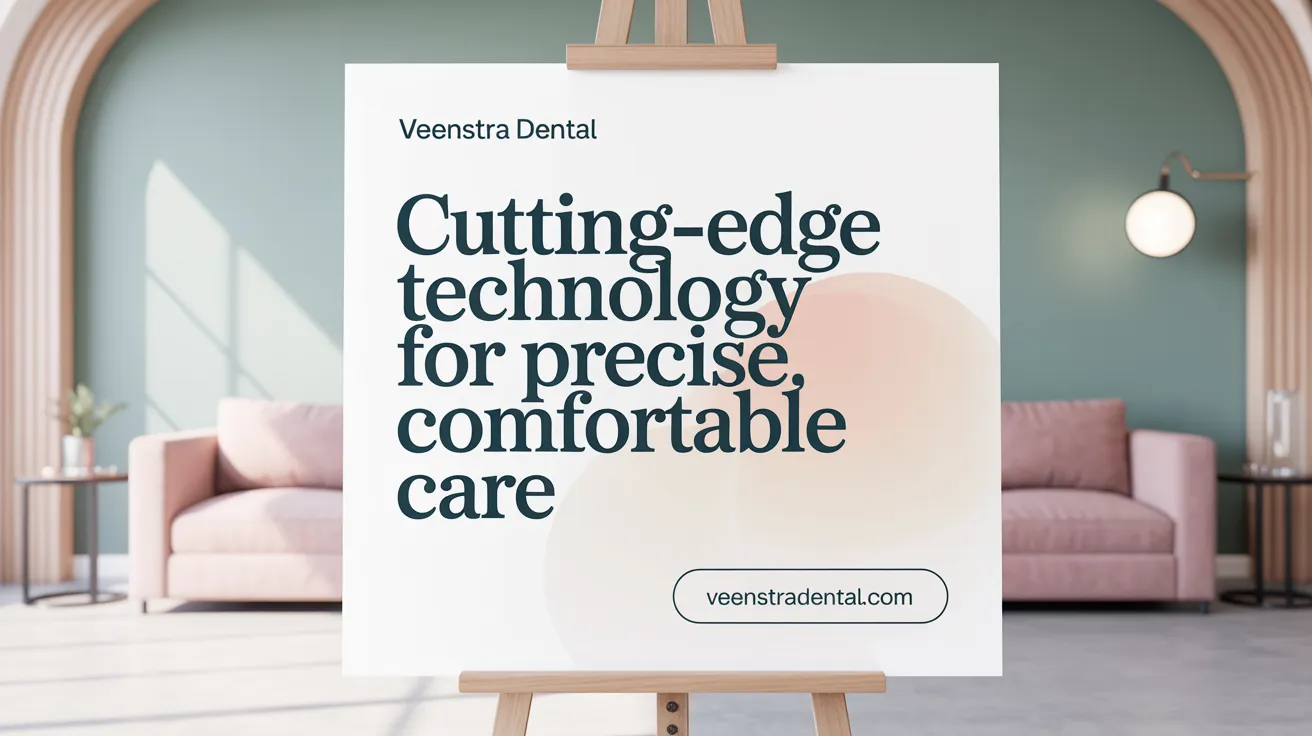Understanding Integrated Family Dental Care
Comprehensive family dental care is more than routine checkups; it encompasses a full spectrum of services designed to meet the unique needs of each family member at every life stage. This approach integrates preventive, restorative, and cosmetic treatments within a patient-centered environment that prioritizes comfort, convenience, and personalized attention. In this article, we explore what truly sets comprehensive family dental care apart and why it is essential for maintaining lifelong oral health.
A Holistic, Personalized Approach to Oral Health

Personalized patient-centered care
Family dental practices emphasize personalized dental care approach tailored to each patient's unique needs. This approach ensures treatments are designed considering individual oral health challenges and preferences, enhancing patient engagement and satisfaction.
Comprehensive oral exams
A thorough assessment forms the foundation of personalized care. Dentists perform extensive thorough oral examinations that check teeth, gums, jaw alignment assessment, and soft and hard tissue evaluation. These evaluations also include screenings for oral cancer and bite assessments to detect potential issues early.
Consideration of overall health and medical history
Comprehensive dental care extends beyond teeth, integrating evaluation of the patient's overall health, medical conditions, allergies, and medications. Since oral health is closely linked to systemic conditions like diabetes and heart disease, incorporating medical history in dental care helps customize care plans and prioritize treatments effectively.
Creating an anxiety-free environment
Recognizing patient comfort as vital, family dental clinics cultivate welcoming atmospheres that reduce anxiety, especially for children and patients with dental fears. Use of soothing communication, sedation dentistry options, and friendly staff contributes to a stress-free experience, encouraging regular visits and proactive oral care.
Extensive Range of Services Under One Roof

What Preventive Care Services Are Offered to Maintain Oral Health?
Comprehensive family dental practices prioritize preventive care to ensure lasting oral health. Services commonly include routine checkups, professional cleanings, sealants and fluoride treatments. These measures help detect early signs of dental concerns such as cavities and gum disease, enabling timely and less invasive treatments. Patient education on oral hygiene and diet further supports prevention strategies for all ages.
What Restorative Dentistry Treatments Are Available?
To repair damaged teeth and restore function, these practices provide a range of restorative services. Treatments include fillings for cavities, crowns to protect weakened teeth, root canal therapy for infected teeth, and dental implants as durable replacements for missing teeth. These interventions help maintain oral health and improve quality of life, often using modern materials and technology for lasting results.
Which Cosmetic Dental Options Enhance Appearance?
Cosmetic dentistry is integrated within comprehensive care, offering treatments such as professional teeth whitening, porcelain veneers, and orthodontic treatments—like traditional braces and clear aligners, which correct misalignments. These options can boost confidence and encourage patients to maintain ongoing oral health.
How Are Emergency Dentistry and Sedation Services Managed?
Many comprehensive dental offices provide prompt emergency care for urgent issues such as severe toothaches, dental injuries, or infections. To accommodate patients with dental anxiety or special needs, sedation options including local anesthesia, intravenous sedation, and in some cases hospital-based sedation, are available. These services aim to ensure a comfortable and anxiety-free treatment experience for patients of all ages.
Advanced Technology Enhancing Diagnosis and Treatment

How Does Advanced Technology Improve Dental Diagnosis and Treatment?
Modern family dental practices incorporate advanced technology such as digital X-rays, intraoral cameras, and 3D imaging to enhance both diagnosis and treatment planning.
Digital X-rays reduce radiation exposure and provide fast, high-quality images that help dentists detect cavities, bone loss, and other hidden issues early.
Intraoral cameras allow detailed visualization of teeth and gums, enabling patients to see real-time images, improving understanding and communication.
3D imaging provides comprehensive views of oral structures, crucial for accurate assessments in complex cases like implants, orthodontics, or root canal therapy.
What Are the Benefits of These Technologies for Patients?
Early detection of dental problems is the foremost advantage, allowing more conservative and successful treatments.
Advanced imaging supports precise treatment planning, resulting in procedures that are more effective, faster, and tailored to individual needs.
These technologies enhance comfort by minimizing invasive diagnostics and reducing the need for multiple appointments.
How Does In-House Anesthesiology and Sedation Dentistry Help Patient Comfort?
Some dental practices offer in-house anesthesiology services and sedation options to ease patient anxiety and pain.
Sedation dentistry can include mild sedation for nervous patients or deeper anesthesia administered by an in-house anesthesiologist.
This approach creates a calm and comfortable environment, encouraging regular visits and allowing complex treatments to be completed safely with minimal discomfort.
The Advantages of Continuity and Convenience in Family Dentistry

Long-term relationships with patients across generations
Family dentistry fosters lifelong connections with patients by caring for all ages under one roof. These relationships enable dentists to monitor oral health trends and hereditary factors within a family, allowing personalized and proactive treatment plans tailored to each individual's unique needs over time.
Streamlined scheduling for multiple family members
Managing dental appointments becomes simpler as family dentistry offers the convenience of coordinating visits for multiple family members in a single location. This reduces travel time, minimizes scheduling conflicts, and makes dental care less stressful for busy households as highlighted by convenient family appointment scheduling.
Management of dental records in one location
Consolidating dental records for all family members at one practice enhances coordination of care. Practitioners have access to comprehensive histories, which improves diagnosis accuracy, facilitates early detection of potential problems, and supports consistent preventive strategies, a key benefit of centralized dental records management.
Building trust and reducing dental anxiety
A familiar dental environment and consistent care provider cultivate trust and comfort, especially in children. This continuity minimizes fear and anxiety related to dental visits, encouraging regular checkups and better oral health habits across generations as explained in comfort and anxiety reduction in family dentistry.
Together, these advantages of family dentistry contribute to more effective, personalized oral healthcare and improve the overall dental experience for families.
Integrating Oral Health with Overall Wellness

What is the connection between oral health and systemic diseases?
Oral health is deeply connected to overall wellness. Poor oral hygiene has been linked to serious systemic diseases such as heart disease, diabetes, pneumonia, and respiratory infections. Gum disease, in particular, can allow harmful bacteria to spread through the bloodstream, affecting organs like the heart and lungs.
How does patient education promote a healthier lifestyle?
Dental practices emphasize educating patients about the vital role of lifestyle and nutrition in maintaining oral health. Guidance often includes reducing processed sugars, increasing fruit intake, maintaining sufficient exercise, and ensuring good sleep habits. Preventive dental care with routine checkups, cleanings, and fluoride treatments complements these lifestyle choices to keep teeth and gums healthy.
Why is there a focus on holistic health and mental well-being?
Holistic dental care recognizes that oral health impacts mental well-being and self-esteem. Cosmetic dentistry services not only improve appearance but also boost confidence. Moreover, treating conditions like gum disease and tooth pain helps reduce discomfort and supports overall mental and physical health.
How are healthy habits supported across all age groups?
Family dental care encourages lifelong oral hygiene habits starting from early childhood, with preventive education tailored for each age. Routine visits foster positive attitudes toward dental care for children and support seniors managing age-related oral health issues like dry mouth or tooth loss. This continuity supports overall health across generations.
Why Choose Comprehensive Family Dental Care?
Comprehensive family dental care sets itself apart through an all-encompassing, patient-focused approach that integrates advanced technology, a wide range of dental services, and a commitment to holistic health. By serving all ages under one roof and fostering long-term relationships, this model ensures continuity and convenience, reduces anxiety, and promotes lifelong oral wellness. The integration of oral health with overall body health underscores the importance of choosing a dental practice that prioritizes education, prevention, and personalized care — empowering families to maintain radiant smiles and optimal health for years to come.
